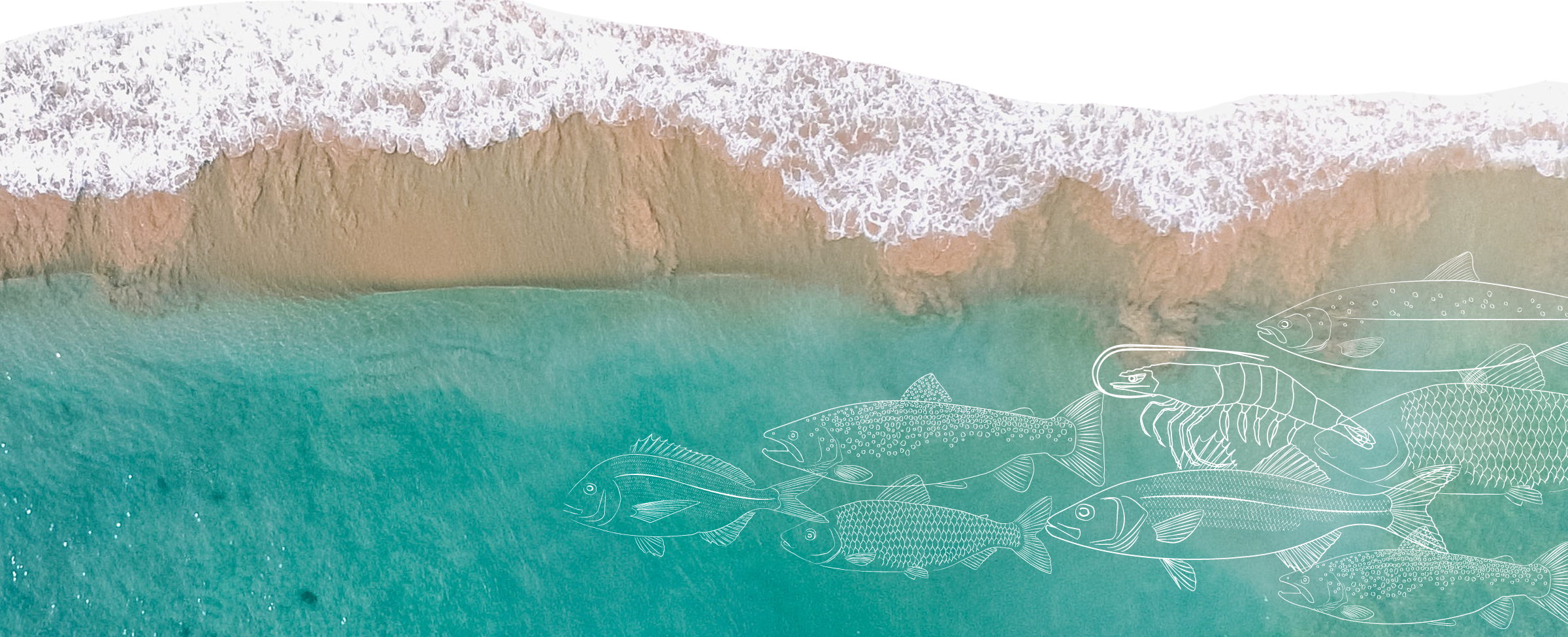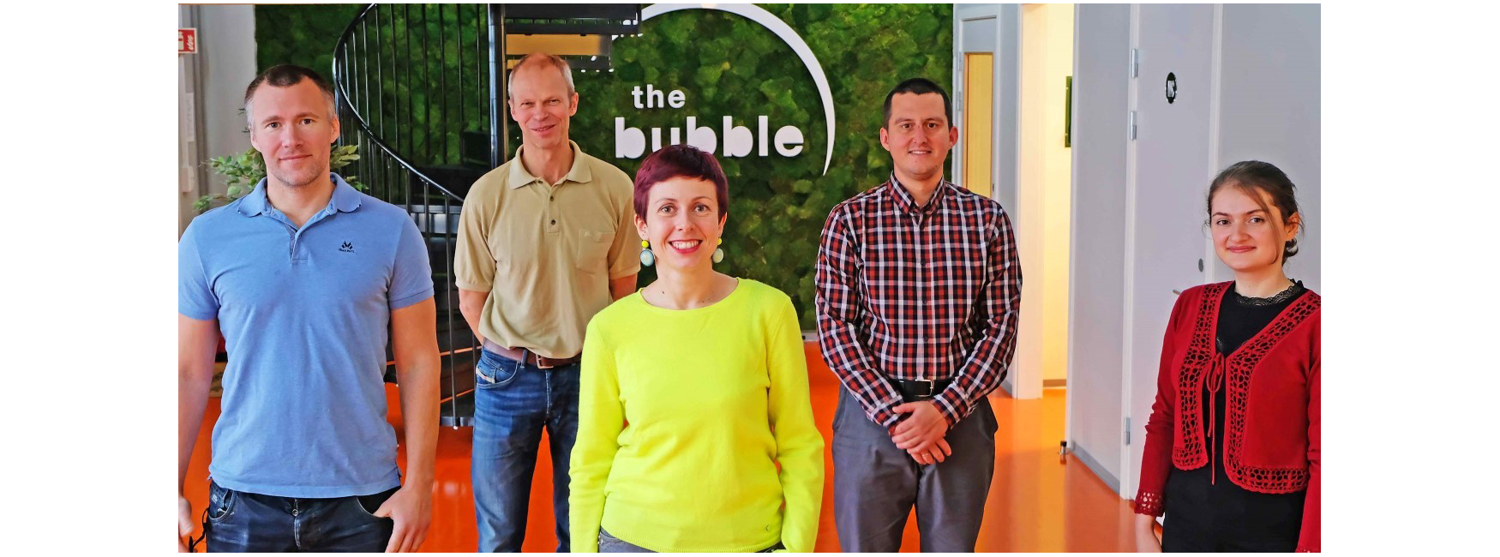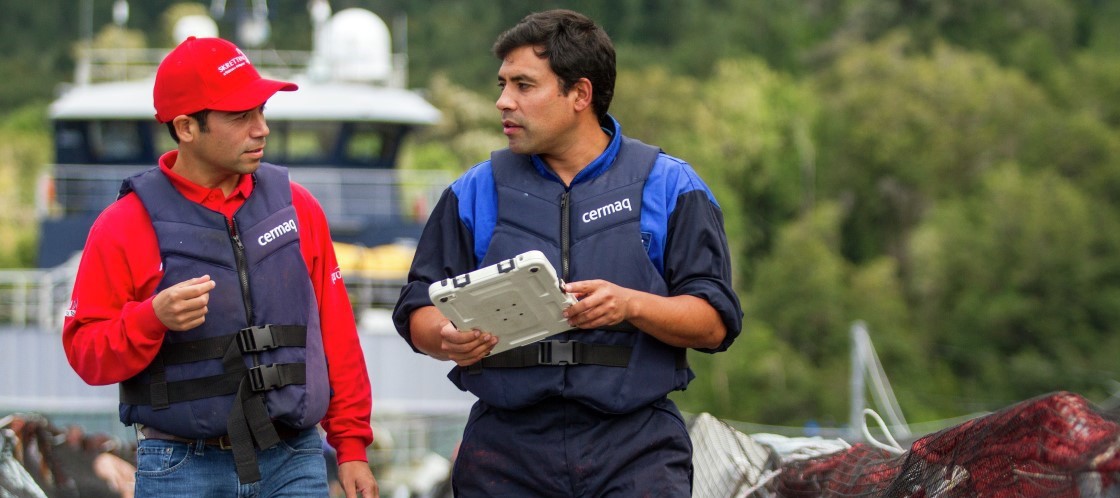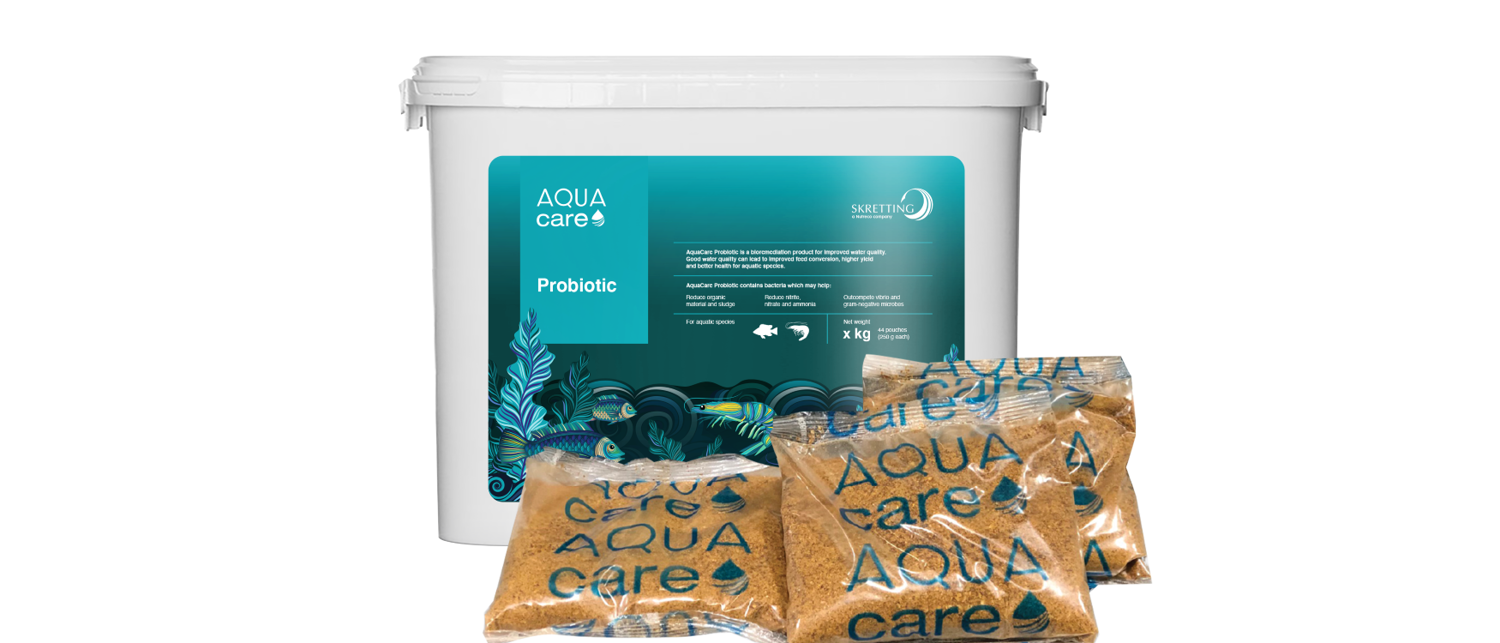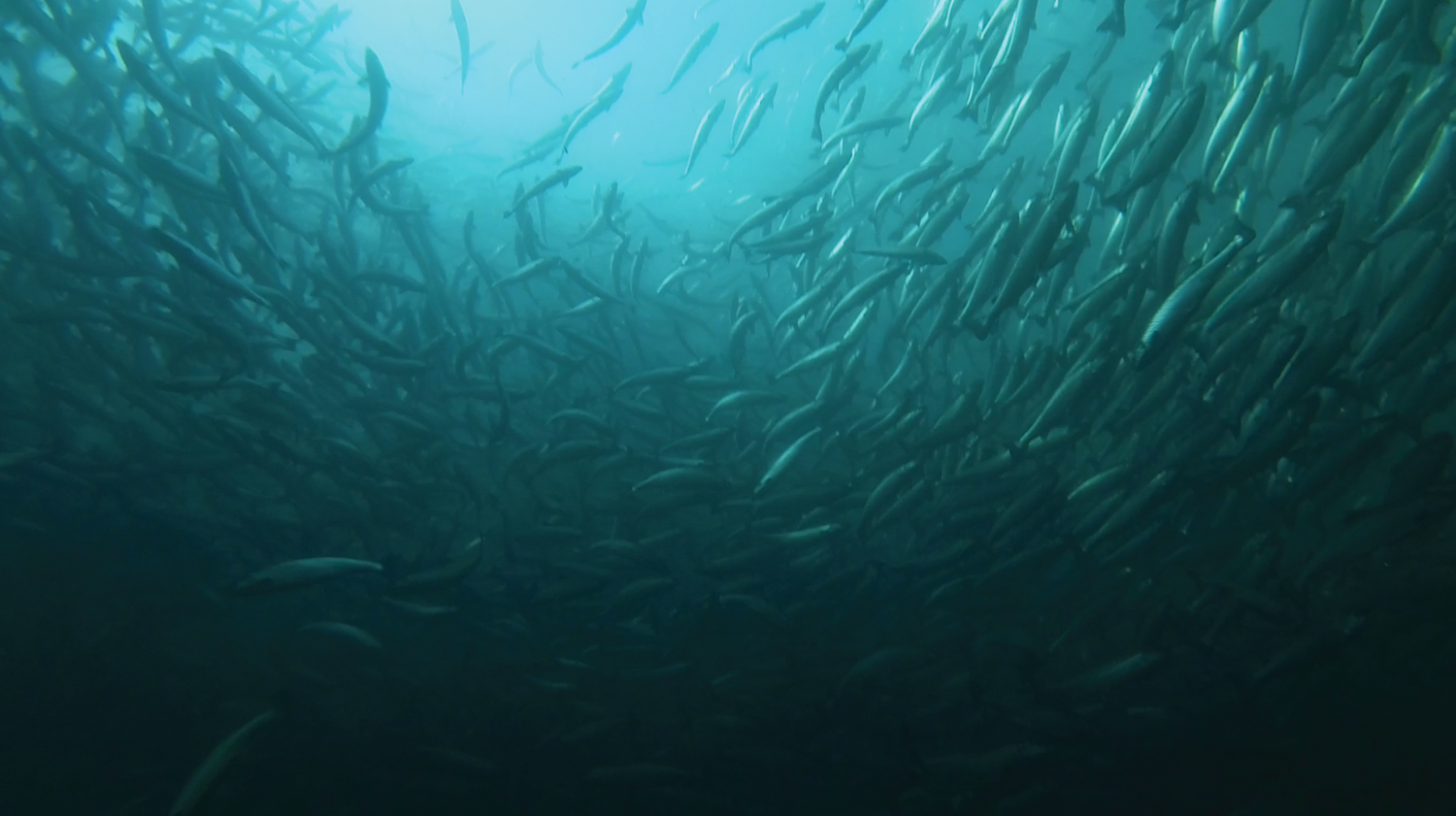
AquaCare – improving water quality for fish and shrimp farming
In certain regions of the world, aquaculture producers face a growing challenge in terms of access to safe, clean water. As a key part of Skretting’s ongoing commitment to improve the sustainability of the industry, we have extended our scope beyond the supply of sophisticated and sustainable feeds by creating the new global product line, AquaCare, specifically focused on providing practical solutions for improving water quality for fish and shrimp farming systems.
One Aquacare product, a simple-to-use probiotic, is designed to work preventatively with the objective to load the water in pond farming systems with beneficial bacteria that prevent the same space from being occupied by potentially harmful bacteria. The bacteria also improve water quality by actively utilising ammonia which is known to be lethal for fish at high concentrations, and consequently reducing the need for water exchange. Organic material, faeces, and small amounts of uneaten feed that would otherwise end up as sludge are consumed by the bacteria, enabling the faster preparation of ponds for the following cycle.
AquaCare is an excellent new solution for Vietnam as a modern aquaculture producer.
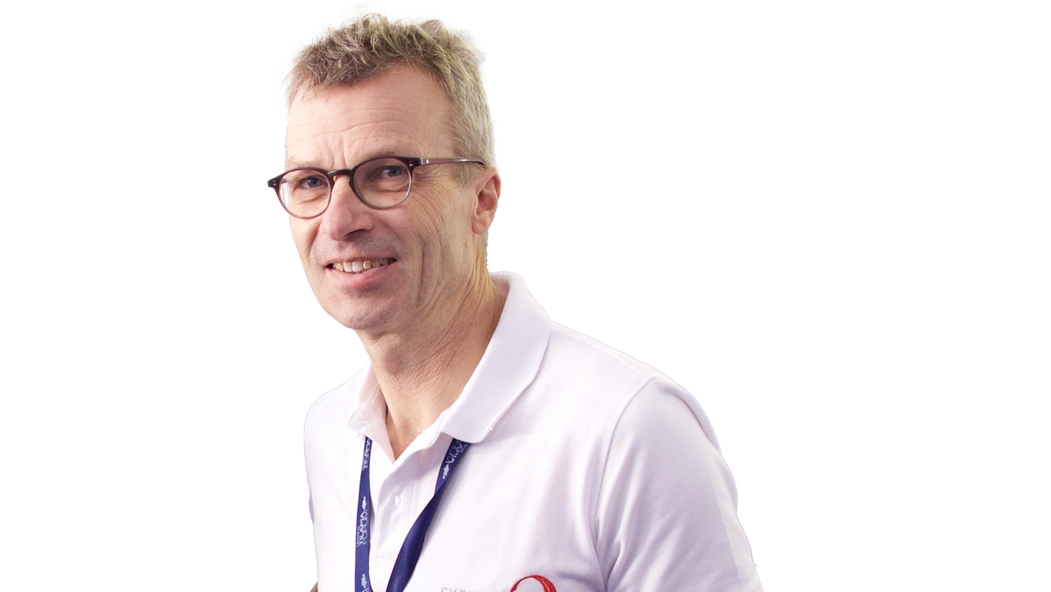
“AquaCare (AOcare in Vietnamese) – is an excellent new solution for Vietnam as a modern aquaculture producer. Through the water quality support that it will give farmers, we are confident that it will make a significant contribution to the industry’s progress. At the same time, our technical team is on-hand to support farmers nationwide with their water quality monitoring, and we have created a platform on social media where farmers and our technicians engage and exchange information related to water quality and other issues. Aquacare will be launched in India and Indonesia in 2021.” Arjen Roem, marketing director Nutreco .

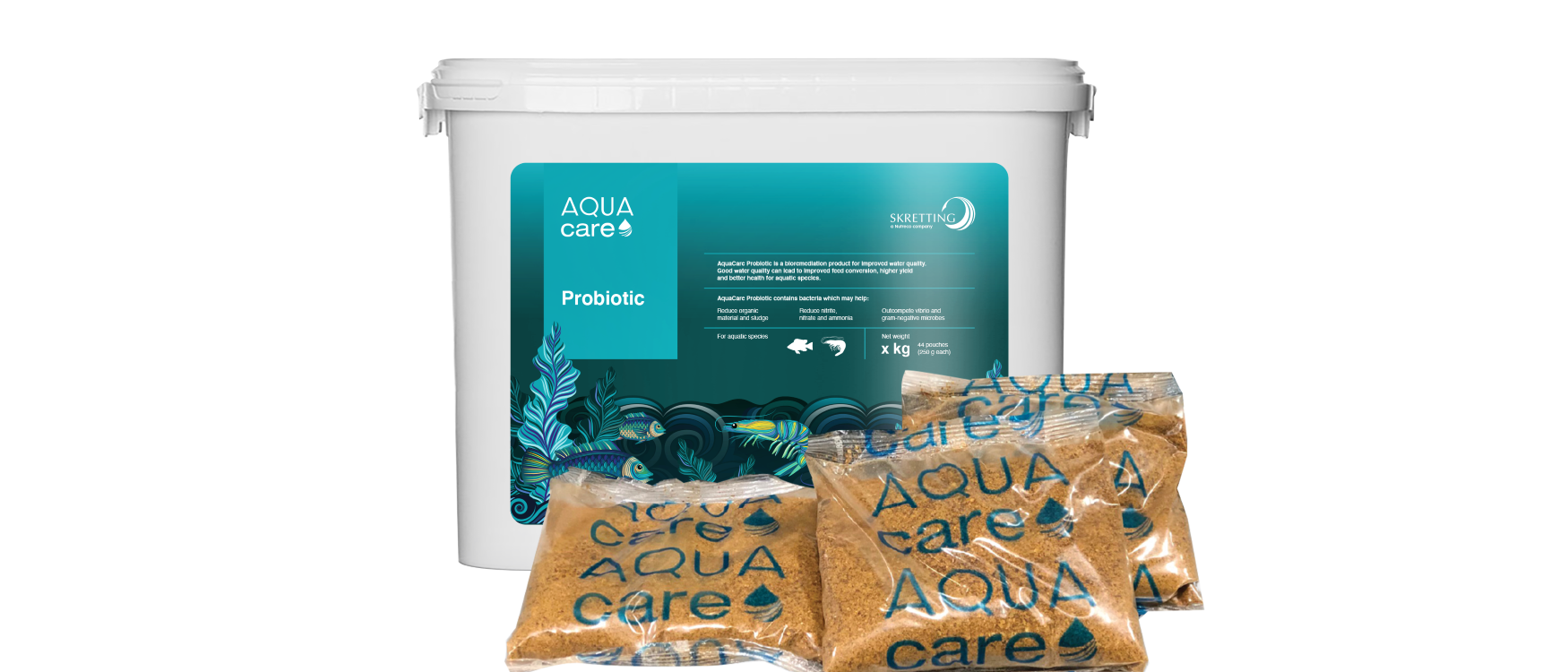
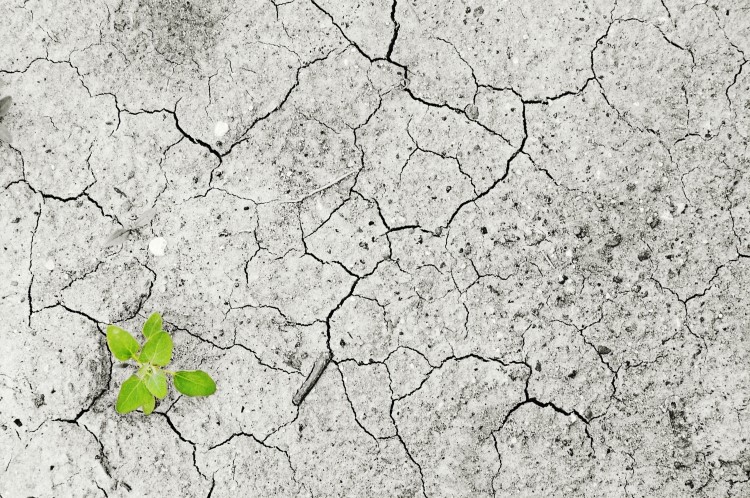
Next
Climate & circularity
Through the 2015 Paris Agreement, world governments committed to limiting global temperature rise to well-below 2°C above pre-industrial levels and pursuing efforts to limit warming to 1.5°C. To achieve this, greenhouse gas emissions (GHGe) must halve by 2030 – and drop to net zero by 2050. An emissions reduction target is defined as ‘science-based’ if it is developed in line with the scale of reductions required to keep global warming well below 2°C from pre-industrial levels.
